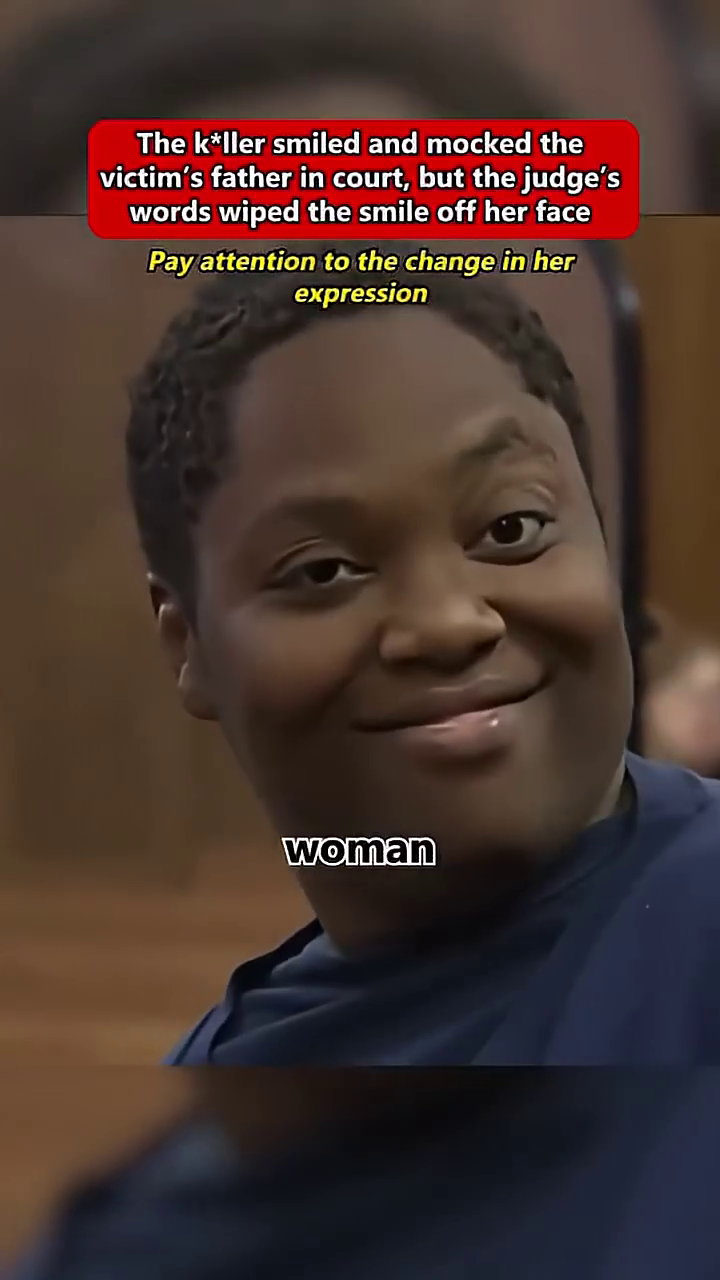The name Julian Wood now carries the weight of a senseless tragedy—a tragedy that unfolded on a bright June day in 2024 outside a North Olmsted, Ohio, supermarket. Julian, a cherished three-year-old boy, was with his mother, Margot Wood, running a simple errand. It was a normal day, the kind of routine moment that countless families experience, until it was catastrophically shattered.
The events that led to the death of young Julian began with a calculated act of theft. Bionca Ellis, a 34-year-old Cleveland woman, stole two knives from a nearby thrift store before entering the Giant Eagle supermarket. She reportedly spotted Julian and his mother inside the store and began to follow them. As Margot Wood was loading groceries into her vehicle, Ellis allegedly approached them, attacking the child as he sat securely in his shopping cart.
In a desperate and heroic attempt to shield her son, Margot Wood suffered injuries herself. Despite her immediate efforts and the subsequent response from law enforcement and emergency medical services, Julian’s life could not be saved. The young boy was pronounced deceased at the hospital, leaving a void of unimaginable grief in the lives of his parents, Margot and Jared Wood.
The shocking nature of the crime—a random, violent act against a vulnerable child in a public place—reverberated throughout the community and captured national attention. It was an act that defied comprehension, laying bare the fragility of safety and the devastating consequences of unaddressed instability.
The Trial and the Guilty Verdict
The judicial process began as the state sought to hold Bionca Ellis accountable for her actions. She was charged with multiple serious counts, including aggravated m*rder, two counts of m*rder, two counts of attempted m*rder, and felonious assault.
Ellis’s defense team argued that she was not guilty by reason of insanity, citing her history of schizophrenia and arguing that her mental state rendered her incapable of understanding the wrongfulness of her actions. However, following a week-and-a-half-long trial in the Cuyahoga County Court of Common Pleas, the jury rejected the insanity plea. They found Bionca Ellis guilty on all nine counts.
The conviction was a crucial step toward justice for the Wood family, but the process of confronting the perpetrator was far from over. The upcoming sentencing hearing, presided over by Judge John J. Russo, would prove to be a moment of wrenching confrontation and unforgettable courtroom drama.
A Defiant Smile: The Courtroom’s Shocking Moment
The victim impact statement is a cornerstone of the American justice system, offering victims and their families a moment to address the court and the convicted directly, sharing the profound, life-altering impact of the crime. For Julian’s parents, this moment was not just about speaking their grief; it was about honoring their son and asserting the profound loss caused by Ellis.
During this emotionally charged phase of the proceedings, particularly when Julian’s father, Jared Wood, addressed the court, Bionca Ellis’s behavior became the focal point of a secondary outrage. Witnesses and video evidence captured a shocking display of smiles, smirks, and mocking gestures directed toward the grieving family.
This conduct was not merely a sign of disrespect; it was perceived as a calculated act of psychological torture, designed to inflict further pain on the parents who had already lost everything. In a moment of devastating transparency, Ellis showed no remorse, no sign of compassion, only a callous disregard for the immense suffering she had caused. This blatant defiance in the face of the family’s profound heartbreak intensified the public’s demand for the maximum possible penalty.
Jared Wood’s Powerful Statement
The father of the victim, Jared Wood, stood before the court and delivered a powerful, heartbreaking statement—an eloquent testament to his son’s life and a scorching indictment of his daughter’s attacker.
He spoke not only of the pain of loss but also directly addressed Ellis’s attempt to use mental illness as a shield, a theme echoed in his wife’s statement as well. While acknowledging that mental illness is a reality, he made a clear distinction: it did not provide a justification for the brutal, targeted attack on his child.
The depth of his pain was clear as he spoke about the hole the loss of Julian had ripped in his family’s lives. He described a future forever diminished, the milestones they would never witness, and the daily agony of their beloved son being taken from them in the most violent way imaginable. His words were a blend of sorrow and unwavering resolve, a desperate push for the justice Julian deserved.
He reminded the court and Ellis that his son was not a statistic but a vibrant, loving child. His voice was a conduit for the collective grief of all who had followed the case, cementing the image of a defiant attacker against a heartbroken father pleading for accountability.
Judge Russo’s Condemnation and Sentencing
Following the victim impact statements and the attorneys’ final arguments, Judge John J. Russo delivered the sentence. Judge Russo’s words were stern, reflecting the gravity of the crime and the overwhelming emotional context of the courtroom.
He took a moment to address the defense’s argument concerning Ellis’s mental health. While affirming that the court recognized her struggle with schizophrenia, he emphasized a crucial legal and moral point: mental illness does not excuse m*rder. The judge also used the opportunity to shine a light on the broader systemic failures, urging city and county leaders to improve the mental health facilities and programs available to those in crisis to prevent future tragedies.
However, the core of the hearing was the punishment. Given the nature of the crime, the jury’s rejection of the insanity plea, and the defendant’s brazen lack of remorse, Judge Russo imposed the maximum penalty under Ohio law: life in prison without the possibility of parole.
“Nothing I say here will ever capture the enormity of your loss,” Judge Russo acknowledged to the Wood family before delivering the final sentence. He concluded that Ellis’s “horrific actions warrant nothing less than life without parole.”
The Aftermath and the Call for Change
Bionca Ellis’s conviction and sentencing brought a form of closure to the legal chapter of this tragedy, though the pain for the Wood family will endure forever. The case has become a lightning rod for discussions around several critical issues:
- Mental Health and the Justice System: The trial highlighted the complex intersection of severe mental illness and criminal accountability. While mental health is a mitigating factor, the legal system ultimately prioritizes public safety and justice for the victims. The judge’s call for better community resources underscores the societal failure that can occur when serious mental health issues go untreated.
- Courtroom Decorum and Respect: Ellis’s behavior during the sentencing hearing sparked a necessary, if uncomfortable, conversation about the respect owed to victims’ families. The law allows for victim impact statements to be heard without disruption or mocking from the defendant, and Ellis’s actions were widely condemned as a deliberate act of cruelty.
- The Unimaginable Loss: Above all, the case is a haunting reminder of the life of Julian Wood, a child whose innocence was violently extinguished. The public outcry and the support for the Wood family, evidenced by the GoFundMe page that raised hundreds of thousands of dollars, reflect a collective mourning for a life stolen too soon.
Jared and Margot Wood continue to navigate their grief, serving as a powerful voice for their son. They hope their story will spur change in how mental health is addressed and ensure that others do not suffer the same catastrophic loss. Their statements, delivered with raw emotion and dignity, ensure that Julian’s memory and the manner of his passing will forever be etched into the public consciousness, a stark reminder of the ultimate price of senseless violence.

